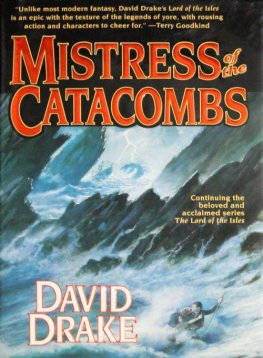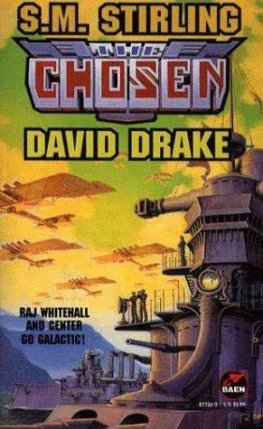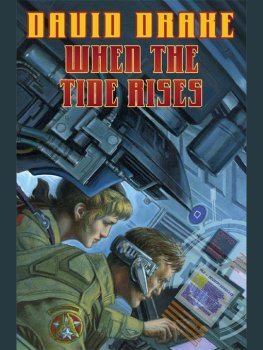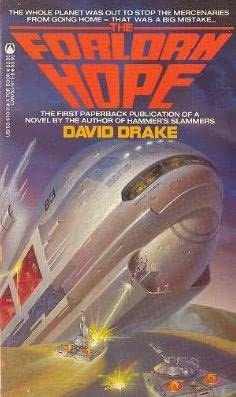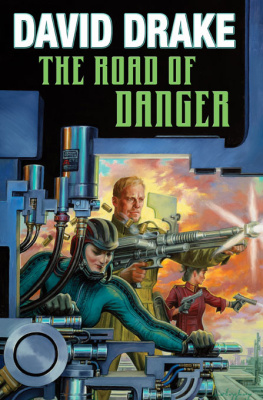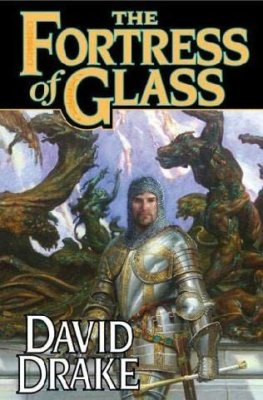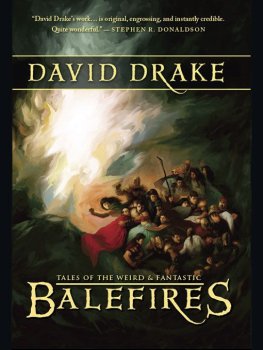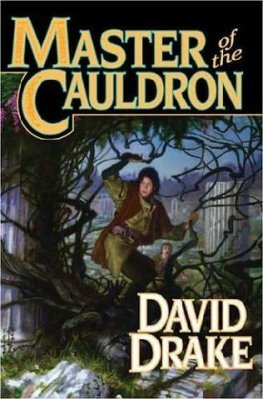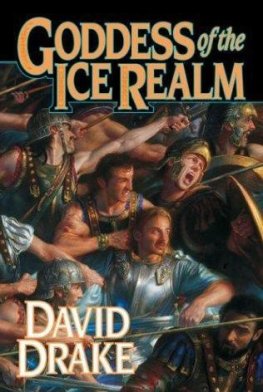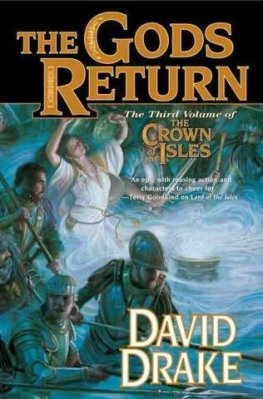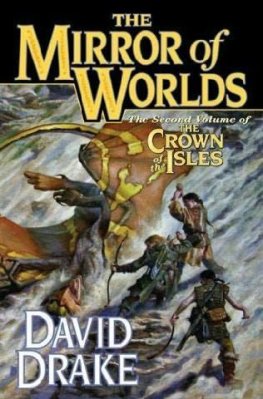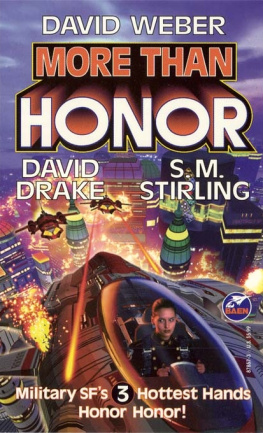David Drake - Out of the waters
Here you can read online David Drake - Out of the waters full text of the book (entire story) in english for free. Download pdf and epub, get meaning, cover and reviews about this ebook. genre: Romance novel. Description of the work, (preface) as well as reviews are available. Best literature library LitArk.com created for fans of good reading and offers a wide selection of genres:
Romance novel
Science fiction
Adventure
Detective
Science
History
Home and family
Prose
Art
Politics
Computer
Non-fiction
Religion
Business
Children
Humor
Choose a favorite category and find really read worthwhile books. Enjoy immersion in the world of imagination, feel the emotions of the characters or learn something new for yourself, make an fascinating discovery.

- Book:Out of the waters
- Author:
- Genre:
- Rating:5 / 5
- Favourites:Add to favourites
- Your mark:
- 100
- 1
- 2
- 3
- 4
- 5
Out of the waters: summary, description and annotation
We offer to read an annotation, description, summary or preface (depends on what the author of the book "Out of the waters" wrote himself). If you haven't found the necessary information about the book — write in the comments, we will try to find it.
Out of the waters — read online for free the complete book (whole text) full work
Below is the text of the book, divided by pages. System saving the place of the last page read, allows you to conveniently read the book "Out of the waters" online for free, without having to search again every time where you left off. Put a bookmark, and you can go to the page where you finished reading at any time.
Font size:
Interval:
Bookmark:
David Drake
Out of the waters
CHAPTER 1
Varus sat upright at his father's side in the Tribunal-the patron's box-over the right edge of the stage in the Pompeian Theater, jotting notes in the waxed memorandum book on in his lap. Staring at him from the vast bowl of the theater was an audience of thousands: perhaps twenty thousand all told, including the slaves standing-they weren't allowed to sit-in the aisles and the surrounding colonnades.
It was disquieting to look out at many human faces, though he knew that only a handful of them were even vaguely aware of Gaius Alphenus Varus. Indeed, very few of the spectators would pay any attention to his father, Gaius Alphenus Saxa: Senator of Carce, Replacement Consul, and destined governor of the province of Lusitania on the Atlantic Coast of the Iberian Peninsula.
The spectators didn't worry Varus as much, though, as the vision forming in his mind: a very old woman, seated on a throne. He wasn't sure if she really existed or if she ever had existed; but he knew why he was seeing her.
Varus was too well schooled in philosophy to lie, even to himself, about his father's personality. Saxa was a cultured and well-read man, but not a particularly wise one. He had chosen to commemorate his consulate by putting on a mime written for the occasion: The Conquest of Lusitania by Hercules.
The Replacement Consul sat on his gilded, high-backed chair, beaming with pleasure. If the Emperor had been present, the Golden Seat would have been his. The Tribunal wasn't the best place from which to view the three-hundred-foot wide stage, but it was the best place in which to be seen by the audience.
The citizens of Carce would probably have preferred watching exotic animals being slaughtered by the hundred and perhaps even convicted criminals being devoured by cats and bears, but Saxa was wealthy enough that the present spectacle was keeping the audience in its seats.
Varus had once imagined he could become a great poet, one whose readings would fill a hall and might even fill this theater. His first public performance had been a disaster, not so much in the eyes of those attending as in his own.
On that occasion, the audience had been of freedmen and hangers-on of his father's wealthy friends, sent as a courtesy. They had expected to be bored. Varus himself was too intelligent and too well taught- He glanced over his shoulder toward his teacher, Pandareus of Athens; the scholar nodded crisply in reply. He sat in the Tribunal as a mark of Saxa's gratitude.
-not to understand how bad his epic was when he heard the words coming out of his mouth.
Under the careful direction of two handlers each, the Cattle of the Sun-big animals with bright bay hides-were marching across the stage. Though they had been gelded and their horns sparkled with gold paint for this show, they were of the same Iberian stock as the bulls which not infrequently gored to death the lions and tigers set to fight them in the arena.
While even more dangerous animals sometimes appeared on stage, these steers were nothing to have loose in the belly of the theater. That was especially true since the seats in the orchestra were reserved for senators and their families.
A steer bellowed peevishly and lashed its tail. The actor playing Hercules stood at the back of the scene on a "rock"; he twitched noticeably. It was unlikely that an angry animal would crash through the spiked iron fence protecting the orchestra, but one certainly might knock down the mountain of plaster on a wicker frame and then start in on the actor who had been standing on it.
The audience would love it, Varus thought, smiling faintly. He wasn't the sort of aristocrat who sneered at The Many, the common people; but even at seventeen he was enough of a philosopher to be wryly amused by the difference between his tastes and those of his fellow citizens of Carce-including the tastes of many who were just as well born as the Alphenus family.
Varus gestured Pandareus to slide his chair up a few inches. The Greek had been careful to take a subordinate place rather than imply his equality with citizens of Carce, but that had now been established. Varus wanted to talk with his teacher, the only person in the box who shared his own passion for truth.
Saxa had a capacious mind, but it was like a magpie's and his learning was slanted toward the marvelous. The more remarkable a report was, the more likely he was to believe it.
Varus preferred sober facts. His smile quirked again. It disturbed him that some of the events he'd recently seen-and participated in-were more amazing than the fantastic myths which charlatans retailed to his father.
Pandareus advanced his chair to the railing. He and the others in the Tribunal sat on backless folding chairs with fabric seats. They were identical to the chairs of the senators in the orchestra, except that the frames were of oak or fruitwood instead of ivory.
Apart from the senators, free persons in the audience sat on stone benches. The wealthier had brought cushions, while the poor made do with a cloak or an extra tunic. This mime was scheduled to last all afternoon, so even a toil-hardened farmer visiting the capital needed something between his buttocks and the stone.
Pandareus followed his pupil's eyes to the slaves in the gallery and murmured, "I wonder how many of them are Lusitanians themselves? It's supposed to be a rather wild province, of course. If there are any of them here, they may not have enough Latin to realize that they're supposed to be looking at their homeland."
The last of the cattle stamped and clattered off the stage below the Tribunal. An actor dressed as Mercury with a silver helmet and winged sandals cried, "Behold, the treasures of Lusitania, now yours by right of conquest!"
The first of what was obviously a long line of donkeys followed the steers. Instead of ordinary pack saddles, the animals were fitted with shelves which displayed silver and gold plate, bronze statuary, silks, and expensive pottery. Some of the dishes were decorated blue on a white background, products of the same far eastern peoples who produced the silk.
"Master?" Varus said as a question occurred to him. "There were twenty cattle. Is there some literary basis for that? Because frankly-"
He lowered his voice, though there was no likelihood that Saxa on his right side could have overheard.
"-I would have expected my father to provide more, just for the show."
Pandareus allowed himself a pleased smile. "As it happens," he said, trying to keep the pride out of his voice, "your father's impresario, Meoetes, asked me the same question while he planned the mime. I told him that annotations by Callimachus on Euripides claim that the 'cattle' are actually a metaphor for the twenty letters of the Greek alphabet which Heracles-"
He used the god's Greek name.
"-brought to replace the Alphabet of Cronus. Meoetes was doubtful, as you surmise, but the senator insisted on accuracy over spectacle." He coughed and continued, "Since I couldn't give any guidance on the loot of Iberia, I believe they decided to, ah, spread themselves."
Varus grinned again, feeling a rush of unexpected warmth toward his father. Saxa had not been harsh toward his son and daughter-he wasn't a man who could be harsh to anyone, even a slave; though of course he had foremen and stewards who could be do what they thought was necessary. Neither had Saxa showed any interest in his children, however.
That had changed very recently. Saxa appreciated the real erudition which he was honest enough to know that he lacked himself. He had learned that Marcus Priscus, a member of the Commission for Sacred Rites and reputedly the most learned man in the Senate, respected Varus' scholarship and regarded Pandareus as his equal in knowledge. That had raised son and teacher enormously in Saxa's estimation.
Font size:
Interval:
Bookmark:
Similar books «Out of the waters»
Look at similar books to Out of the waters. We have selected literature similar in name and meaning in the hope of providing readers with more options to find new, interesting, not yet read works.
Discussion, reviews of the book Out of the waters and just readers' own opinions. Leave your comments, write what you think about the work, its meaning or the main characters. Specify what exactly you liked and what you didn't like, and why you think so.

